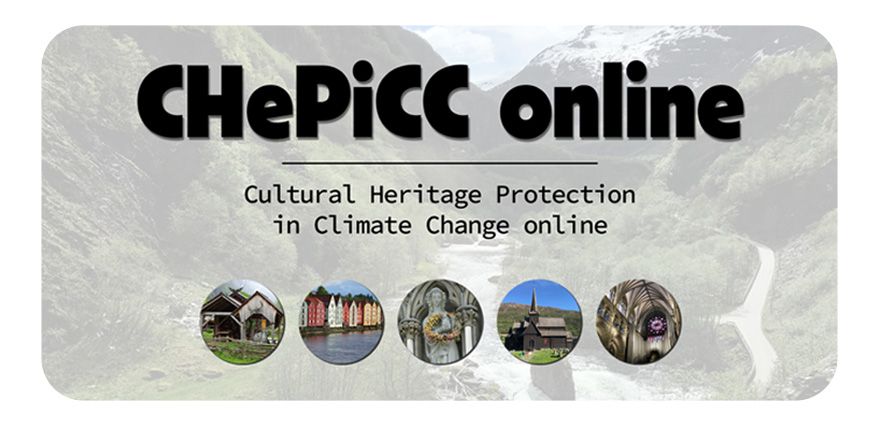-
Graduation
iMooX Course Certificate
-
ECTS-Points
0
-
Learning format
-
Start
continuously possible
-
Costs
EUR 0,-
-
Language
English


The MOOC offers a lot of theoretical input, but also brilliant case studies from countries all over Europe - from Norway to the Canary Islands.
Ass.-Prof. Mag. Dr.
Anna Maria Kaiser
Study Program Director – Center for Cultural Property Protection
Any questions?
We’re here to help.

Ass.-Prof. Mag. Dr.
Anna Maria Kaiser
Study Program Director
Or contact us directly.
Benefit from our study program
- start with the course at any time, without access or admission restrictions
- study at your own pace, independent of time and place
- the integrative, modular and transdisciplinary structure allows integration into existing university curricula
-
interdisciplinary
-
online
-
flexible
MOOC - Massive Open Online Course
A MOOC (Massive Open Online Course) is a freely accessible and openly licensed online course that is available to anyone who is interested, free of charge and independent of time and location. After registering on the online platform iMooX, the MOOC can be completed at your own pace.
Curriculum
The "CHePiCC online - MOOC" consists of 4 units, which are divided into several thematic lessons. Each lesson delves deeply into the respective topic (5 hours/unit).
International experts present their lectures in short videos and and provide a transdisciplinary perspective on cultural heritage protection.
The MOOC is available at any time and from any place with an internet connection, after registering on the iMooX platform. It can be accessed for an unlimited period and completed at an individual pace.
CHePiCC online - MOOC
-
Contents
Introduction to various aspects of cultural heritage and its protection: basic information about cultural heritage, threats to cultural heritage, decay and neglect, risk assessment and emergency planning, architecture and built heritage, key concepts, causes of decay, risk management and innovative approaches to cultural heritage
-
Contents
Protection of cultural heritage and the effects of climate change: simulations and projections of weather and climate extremes, models for understanding the climate system, environmental monitoring as preventive conservation including climate and pollutant parameters, WebGIS tool for risk mapping of cultural heritage, climate change as a threat to cultural heritage from the perspective of conservators, threats to architectural cultural heritage, case studies from Norway and the Canary Islands, effects of climate change on cultural heritage
-
Contents
Cultural landscapes as an important habitat of cultural heritage: boundaries between cultural and natural landscapes, natural compensation processes of local climatic conditions, ecosystem services, terrace landscapes, natural and cultural landscapes in the Mediterranean, the Danube region, Norway and the Czech Republic
-
Contents
Interrelation between climate change, cultural heritage and landscapes, with a focus on protection against natural disasters: Sendai Framework for Disaster Reduction and Recommendations for the Protection of Cultural Heritage, international NGOs in the field of cultural heritage protection, Italy's National Strategy for the Adaptation of Cultural Heritage Protection to Climate Change, microclimate as a factor for the protection of archives and libraries in historic buildings, preparation of emergency plans and evacuation scenarios, protection of coastal landscapes
Completion
After selected lessons, a single-choice quiz must be completed. The questions in the quiz relate to the content previously presented.
In order to receive a course certificate, each quiz in the MOOC must be passed (at least 75% of the questions in each quiz must be answered correctly).
Upon successful completion, your iMooX course certificate will be available for download from your iMooX account.
Study Program Director
The necessary holistic approach to the broad topic of cultural heritage protection is ensured by the transdisciplinary composition of the consortium, with expertise in cultural heritage protection, cultural landscapes, climatology and climate change, civil engineering, materials handling, preparedness, heritage sciences, conservation and restoration.
Extension to 6 ECTS credits
Students may obtain 6 ECTS credits through the "CHePiCC online, MCP." The "CHePiCC Online - MOOC" forms the first module of this MCP, followed by a second module (writing a Reflecting Paper).
This time- and location-independent MCP is part of the Stackable Program and may be flexibly combined with other continuing education programs up to the "Cultural Heritage Protection, MSc (CE)".
Registration
- Create an account or log in: Create a free account on the iMooX platform or log in to your existing account.
- Access the dashboard: After a successful login, you will be directed to your "Dashboard".
- Find the MOOC: Navigate to "All courses" in the left-hand navigation menu and enter "CHePiCC online" or "Cultural Heritage Protection in Climate Change online" in the search bar
- Navigate to the MOOC: Click on the "Show Course" button below the "CHePiCC online" course field to go to the MOOC profile page.
- Start the MOOC: On the profile page you will find all the details about the MOOC. Click on the orange "Show course" button at the bottom of the screen to start the MOOC.
- Upon logging in again, the MOOC will be displayed in your personal dashboard.
Follow-up studies & programs
Tags

